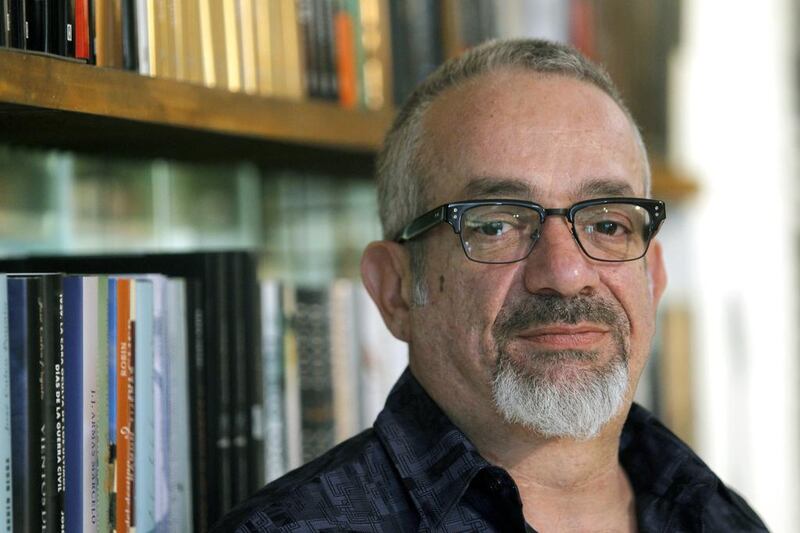Authors are faced with a multitude of challenges when they set out on the long road to fashioning their latest opus. Plotting, ideas, settings, characters – all are key. But the bestselling Lebanese-American author Rabih Alameddine set himself an unenviable task when he happened across the person he wanted to write about next: an obsessively introverted 72-year-old Beirut woman.
To make the character Aaliya both convincing and likeable seemed like an act of self-torture for a man nearly 20 years her junior. Yet somehow, Alameddine manages it in his new book, An Unnecessary Woman. Writing in The National’s The Review section on February 15, Fran Hawthorne marvelled at Alameddine’s ability to “create characters that capture and draw in the reader”.
“And don’t forget – she has blue hair, too,” says Alameddine, laughing, while speaking from his home in San Francisco. “The trick was to concentrate on writing in the voice of Aaliya rather than think I was somehow representing all women. I always try to make a character real first – in a way, she’s nothing like a single person I know, but at the same time like a lot of people I know. It wasn’t so difficult with a bit of imagination.”
Alameddine enjoyed real success with his previous book, The Hakawati, a sprawling, centuries-wide paean to storytelling in the Middle East. He thinks An Unnecessary Woman is a reaction to that novel: even though both revel in the joys of literature, this one is, for him, a “quieter”, more focused book.
Aaliya tells the story of her life in an unsettled Beirut: she is childless, married and divorced at an early age and now alone with just her literary translations to work on – and Alameddine wants the reader to decide whether that state of affairs is by “choice or circumstance”.
Yet Aaliya is also great fun. She looks on at the acquaintances she does have with detached bemusement, but they still stand up for this strange woman who is willing to perform certain favours to get her hands on an AK-47 during the civil war. “And for her that’s living,” says Alameddine.
“When I’m in Beirut, I don’t fit in there and neither does Aaliya and that’s what I’m interested in – the tension of dislocation. But Aaliya feels fortunate to be Lebanese, too – as I do. Being born into that culture is good because it’s constantly changing and clashing. It never allows people to sink into what I would call a homogenous coma, where we all watch the Super Bowl together.
“In Lebanon, there are completely different opinions and values in one country in terms of religion, modernity, tradition, East and West – which allows for a kind of intellectual development not available anywhere else. I can easily hold two opposing beliefs at the same time without any problem, which I find, well, mind-expanding really. The only problem comes when people end up jumping into extremism, which happens too often.”
All this might make An Unnecessary Woman sound unbearably lofty – bleak, even. Alameddine’s real triumph is Aaliya’s mordant wit at the state of Beirut through the years (“ceasefire number 53,274,” she notes), her wonder at the possibilities of literature and her endearing perseverance.
In the book, she moans that “most books these days consist of a series of whines followed by an epiphany”, and yet, An Unnecessary Woman deliberately, ironically, follows that pattern.
“But I leave it open about whether she gets her epiphany,” Alameddine teases. “There’s a moment in which she talks about becoming truly involved in the books she reads – and that’s the real heart of what I was trying to do. I want people to be really touched by her, to empathise with her and to find her fully human.”
A 72-year old human, no less. With blue hair and an AK-47.
• An Unnecessary Woman (Grove Atlantic) is out now. For more information, visit rabihalameddine.com
artslife@thenational.ae










